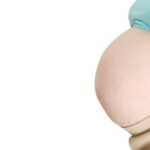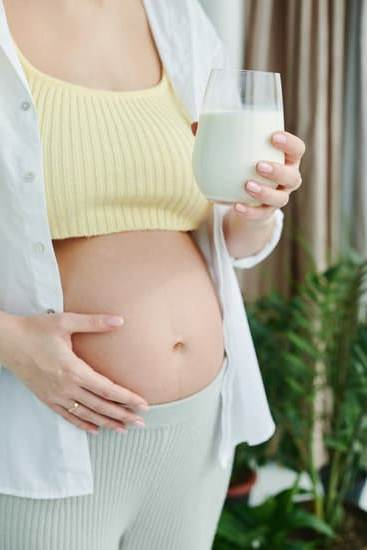Pregnancy tests are an essential tool for individuals wanting to confirm whether they are expecting a child. However, it is crucial to ensure the accuracy of these tests for peace of mind and proper decision-making. One question that often arises is, “do pregnancy tests expire?” It’s important to understand the expiration date of pregnancy tests and how it can impact their effectiveness.
The expiration date of a pregnancy test is a significant factor in determining its reliability. Like any other product, pregnancy tests have a shelf life, and using them beyond their expiration date can potentially compromise their accuracy. In this article, we will delve into the concept of pregnancy test expiration, discussing its implications on result accuracy and the potential risks associated with using expired tests.
Understanding how expiration affects the accuracy of pregnancy tests is essential for individuals relying on these tests for crucial decisions. Factors such as storage conditions, handling, and environmental exposure can impact the shelf life of a pregnancy test.
It’s vital to be aware of these factors and how they can influence the expiration date of the test you are using. Join us as we explore the importance of ensuring non-expired pregnancy tests for accurate results and ways to properly store them to maximize their shelf life.
What Is the Expiration Date of a Pregnancy Test
Pregnancy tests are a crucial tool for women who are trying to conceive or suspect that they may be pregnant. However, it is important to ensure the accuracy of these tests in order to make informed decisions about one’s reproductive health. One key factor in ensuring the accuracy of a pregnancy test is paying attention to its expiration date.
Shelf Life of Pregnancy Tests
The typical shelf life of a pregnancy test is around two to three years from the manufacturing date. Most pregnancy tests will have an expiration date clearly indicated on the packaging or individual test packaging. It is crucial to take note of this date and not use a pregnancy test that has passed its expiration.
How to Check for Expiration
To check if a pregnancy test has expired, simply look at the packaging for the expiration date. If it has been stored out of its original packaging, it may be more difficult to determine if it is expired. In this case, it is best to err on the side of caution and refrain from using any pregnancy test that cannot be confirmed as non-expired.
It is important to remember that using an expired pregnancy test can significantly impact result accuracy, potentially leading to false positives or negatives. A reliable result depends on using a non-expired test and following the instructions carefully for accurate results.
How Expiration Affects Accuracy
When it comes to pregnancy tests, accuracy is crucial. Using an expired pregnancy test can have a significant impact on the reliability of the results. The expiration date of a pregnancy test is determined by the manufacturer and is typically printed on the packaging. It is important to note that once a pregnancy test has expired, its accuracy may be compromised. This makes it essential for individuals to be aware of how expiration affects accuracy when using these tests.
The chemical components in a pregnancy test can deteriorate over time, especially if the test is not stored properly. This deterioration can lead to inaccurate results, including false positives or false negatives. The expiration date serves as a guide for when the test is most reliable, and using it beyond this point can lead to unreliable results.
In addition to potential inaccuracies, using an expired pregnancy test may also lead to unnecessary stress and confusion. For individuals who are actively trying to conceive or are concerned about a possible pregnancy, relying on an expired test may result in unnecessary emotional strain. Therefore, it is important to always check the expiration date before using a pregnancy test, and if in doubt, replace it with a non-expired one.
| Expiration Date | Impact on Accuracy |
|---|---|
| Expired | Potential for inaccurate results including false positives or negatives |
| Non-Expired | Test is more reliable and accurate |
Factors That Can Affect Expiration
Pregnancy tests are important tools used to determine whether or not a woman is pregnant. However, it’s crucial to ensure that these tests are accurate and reliable. One factor that can affect the accuracy of a pregnancy test is its expiration date. Therefore, it’s essential to understand how various factors can affect the expiration of pregnancy tests, including storage and handling.
Some of the factors that can affect the expiration of pregnancy tests include:
- Exposure to heat and humidity: Storing pregnancy tests in a damp or hot environment can degrade the chemicals on the test strip, leading to inaccurate results.
- Improper handling: Rough handling or dropping a pregnancy test can cause damage to its components, affecting its shelf life and accuracy.
- Storage conditions: Storing the pregnancy test in extreme temperatures or direct sunlight can shorten its shelf life and potentially impact its effectiveness.
To ensure the reliability of a pregnancy test, it’s important to pay attention to these factors. Proper storage and handling can help maximize the shelf life of a pregnancy test and maintain its accuracy. By taking care to store them in a cool, dry place and handle them gently, individuals can increase their chances of obtaining an accurate result when using a pregnancy test.
Risks of Using Expired Pregnancy Tests
Using an expired pregnancy test can pose potential risks and consequences that could affect the accuracy of the results. One of the main risks of using an expired pregnancy test is that it may not provide reliable results. The chemical reagents in the test may deteriorate over time, leading to inaccurate readings. This can result in false negative or false positive results, which can have significant emotional and practical implications for individuals hoping to conceive or avoid pregnancy.
Another risk of using an expired pregnancy test is the increased likelihood of encountering evaporation lines. Evaporation lines are faint lines that can appear on a pregnancy test after it has been sitting for a prolonged period. Using an expired test may increase the chances of mistaking these lines for a positive result, leading to confusion and anxiety for the individual taking the test.
Furthermore, there is a potential risk of bacterial contamination when using an expired pregnancy test. Over time, the protective seal on the test may weaken or break down, allowing bacteria to enter the testing area. This can compromise the accuracy of the results and may also pose health risks for the individual using the test.
To minimize these risks and ensure accurate results, it’s important to check the expiration date before using a pregnancy test, as well as following proper storage guidelines to maintain its effectiveness. Ultimately, using non-expired pregnancy tests is crucial in obtaining accurate and reliable results for informed decision-making regarding pregnancy.
- Risks of using expired pregnancy tests:
- Inaccurate readings
- Increased likelihood of evaporation lines
- Potential bacterial contamination
How to Properly Store Pregnancy Tests
When it comes to taking a pregnancy test, ensuring its accuracy is crucial. One factor that can affect the accuracy of a pregnancy test is its expiration date. Many people may not be aware that pregnancy tests do have an expiration date, and using an expired test can lead to inaccurate results. In this section, we will discuss how to properly store pregnancy tests to maximize their shelf life and ensure accurate results.
The expiration date of a pregnancy test can typically be found on the packaging or the instructions included with the test. It’s important to check this date before using the test, as using an expired pregnancy test can lead to false results.
Most pregnancy tests have a shelf life of around 2-3 years, but this can vary depending on the brand and type of test. Ensuring that you use a non-expired pregnancy test is essential for obtaining reliable results.
Properly storing pregnancy tests is key to maximizing their shelf life and ensuring accuracy. Pregnancy tests should be stored in a dry place at room temperature, away from direct sunlight and moisture. Storing them in humid environments such as bathrooms should be avoided, as moisture can affect the integrity of the test components. By following these storage tips, you can help ensure that your pregnancy tests remain effective until their expiration date.
| Topic | Details |
|---|---|
| Shelf Life of Pregnancy Tests | Around 2-3 years, varies by brand and type |
| Storage Tips | Store in dry place at room temperature away from sunlight and moisture |
When to Replace a Pregnancy Test
Pregnancy tests are a crucial tool for women to confirm or rule out pregnancies. However, just like any other medical product, pregnancy tests have a shelf life and can expire. It is important for women to be aware of the expiration date of their pregnancy test and understand when it’s time to replace it, even if it hasn’t reached its expiration date.
What Is the Expiration Date of a Pregnancy Test
Pregnancy tests typically have an expiration date printed on the packaging. This date indicates the last day that the test is guaranteed to provide accurate results. It is important for women to check this date before using a pregnancy test to ensure its accuracy.
It is worth noting that some pregnancy tests may have varying shelf lives depending on their brand and type. For example, digital pregnancy tests may have a shorter shelf life compared to traditional line tests. Therefore, it’s crucial to read the instructions and information provided by the manufacturer to determine the expiration date of a specific pregnancy test.
Risks of Using Expired Pregnancy Tests
Using an expired pregnancy test can result in inaccurate results, which can have significant implications for women who are trying to conceive or avoid pregnancy. An expired test may give false positive or false negative results, leading women into making crucial decisions based on inaccurate information.
Moreover, using an expired pregnancy test can also cause unnecessary stress and emotional turmoil for women. It’s essential for women to understand that relying on an expired test can lead to unnecessary anxiety and confusion regarding their reproductive health.
Conclusion
In conclusion, it is crucial to ensure that the pregnancy test being used is not expired in order to obtain accurate results. As discussed earlier, using an expired pregnancy test may affect its accuracy and result in false positives or false negatives. This can lead to unnecessary stress, confusion, and potential health risks for the individual taking the test.
Factors such as improper storage, exposure to moisture or extreme temperatures, and handling can all contribute to the expiration of a pregnancy test. It’s important to always check the expiration date before using a test and to consider replacing it if there are any doubts about its shelf life.
Properly storing pregnancy tests in a cool, dry place can help maximize their shelf life and accuracy. Additionally, knowing when to replace a pregnancy test, even if it hasn’t reached its expiration date, is important for ensuring reliable results. Overall, using non-expired pregnancy tests is essential for peace of mind and making informed decisions about one’s reproductive health.
Frequently Asked Questions
Can You Use an Expired Pregnancy Test?
Using an expired pregnancy test is not recommended as it may give inaccurate results. The chemicals in the test may deteriorate over time, affecting its ability to detect pregnancy hormones.
What Is the Validity of a Pregnancy Test?
The validity of a pregnancy test can vary depending on the brand and type of test. In general, most home pregnancy tests are valid for up to two years from the manufacturing date. It’s important to check the expiration date before using the test to ensure accurate results.
When Do Pregnancy Tests Stop Working?
Pregnancy tests typically stop working once they have reached their expiration date or if they have been stored improperly. Exposure to heat, moisture, or direct sunlight can also affect the test’s functionality. It’s crucial to follow the instructions and store the test properly to ensure its reliability when used.

Welcome to my fertility blog. This is a space where I will be sharing my experiences as I navigate through the world of fertility treatments, as well as provide information and resources about fertility and pregnancy.





